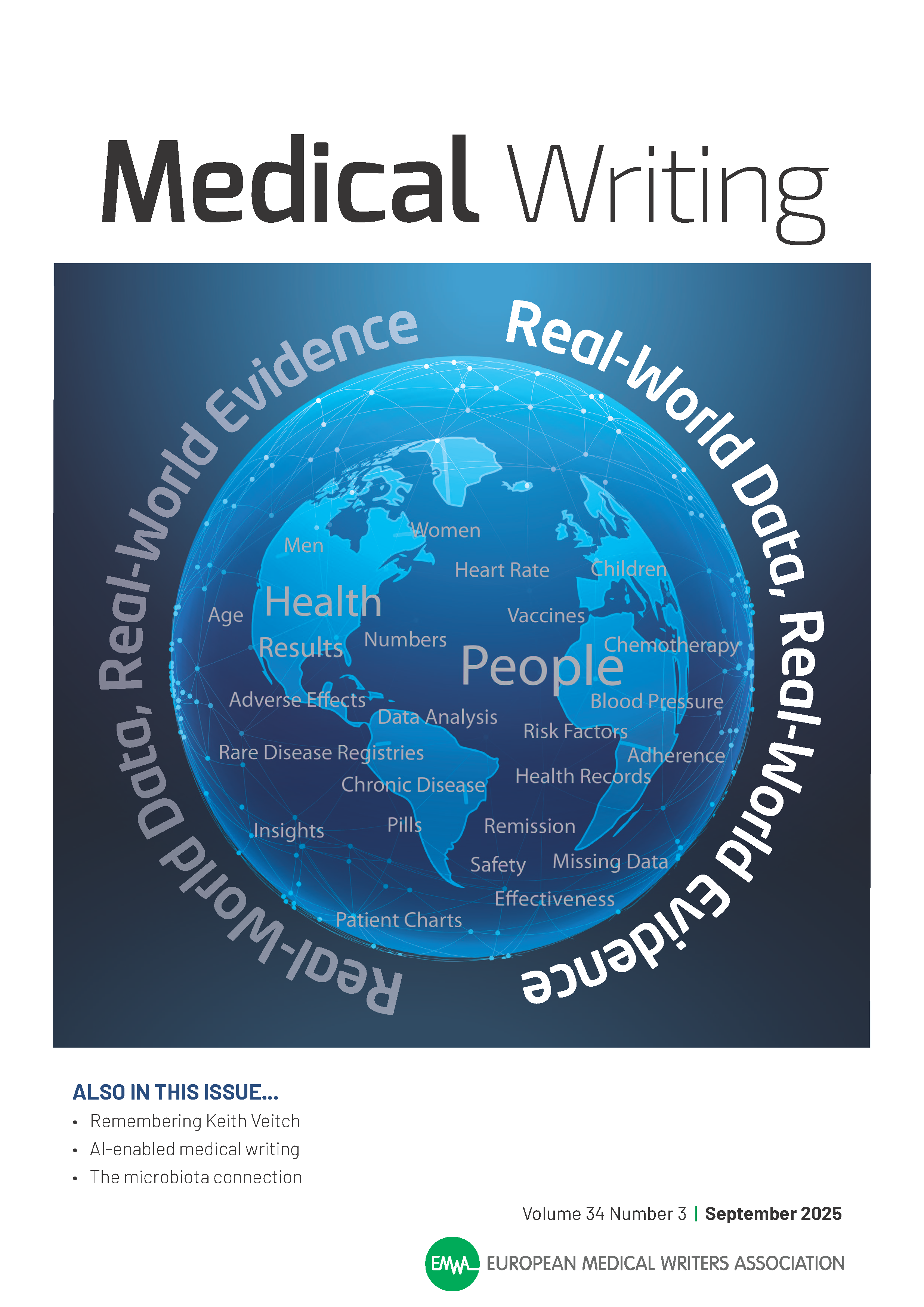
Volume 34, Issue 3 - Real-World Data, Real-World Evidence
Artificial intelligence and machine learning in real-world evidence: Transforming data into actionable insights
Authors: Pattabhi Machiraju, Hemalatha Jayapalan, Giles Devasahayam, Manjari Deshmukh
Abstract
In recent years, the healthcare industry has experienced an exponential growth in the volume of real-world data (RWD) due to advancements in digital health, electronic health records (EHR), wearables, and other data-generating technologies. The integration of artificial intelligence (AI) and machine learning (ML) into real-world evidence (RWE) generation has the potential to revolutionise how clinical and healthcare decisions are made. AI and ML can effectively analyse large and complex datasets, identifying patterns and insights that were previously hidden or too difficult to detect using traditional analytical methods. For medical writers involved in regulatory submissions, clinical research docu menta tion, and healthcare communications, understanding the application of AI and ML in RWE generation is essential. This publication explores the impact of AI/ML on RWE, its regulatory considerations, and best practices for integrating AI-driven insights into medical writing.
Medical Writing. 2025;34(3):78–82. https://doi.org/10.56012/rimq2971
 Download the full article
Download the full article
Search
Articles
Links
Editoral Board
Editor-in-Chief
Co-Editors
Senior Editor
Victoria White
Managing Editor
Alicia Brooks Waltman
Associate Editors
Section Editors
AI/Automation
Biotechnology
Digital Communication
EMWA News
Freelancing
Gained in Translation
Getting Your Foot in the Door
Good Writing Practice
Pablo Izquierdo / Alison McIntosh
In the Bookstores
Publications
Medical Communications/Writing for Patients
Medical Devices
My First Medical Writing
News from the EMA
Pharmacovigilance
Regulatory Matters
Regulatory Public Disclosure
Louisa Ludwig-Begall / Sarah Kabani
The Crofter: Sustainable Communications
Veterinary Writing
Editors Emeritus
Layout Designer
Chris Monk
 Visit the EMWA website
Visit the EMWA website